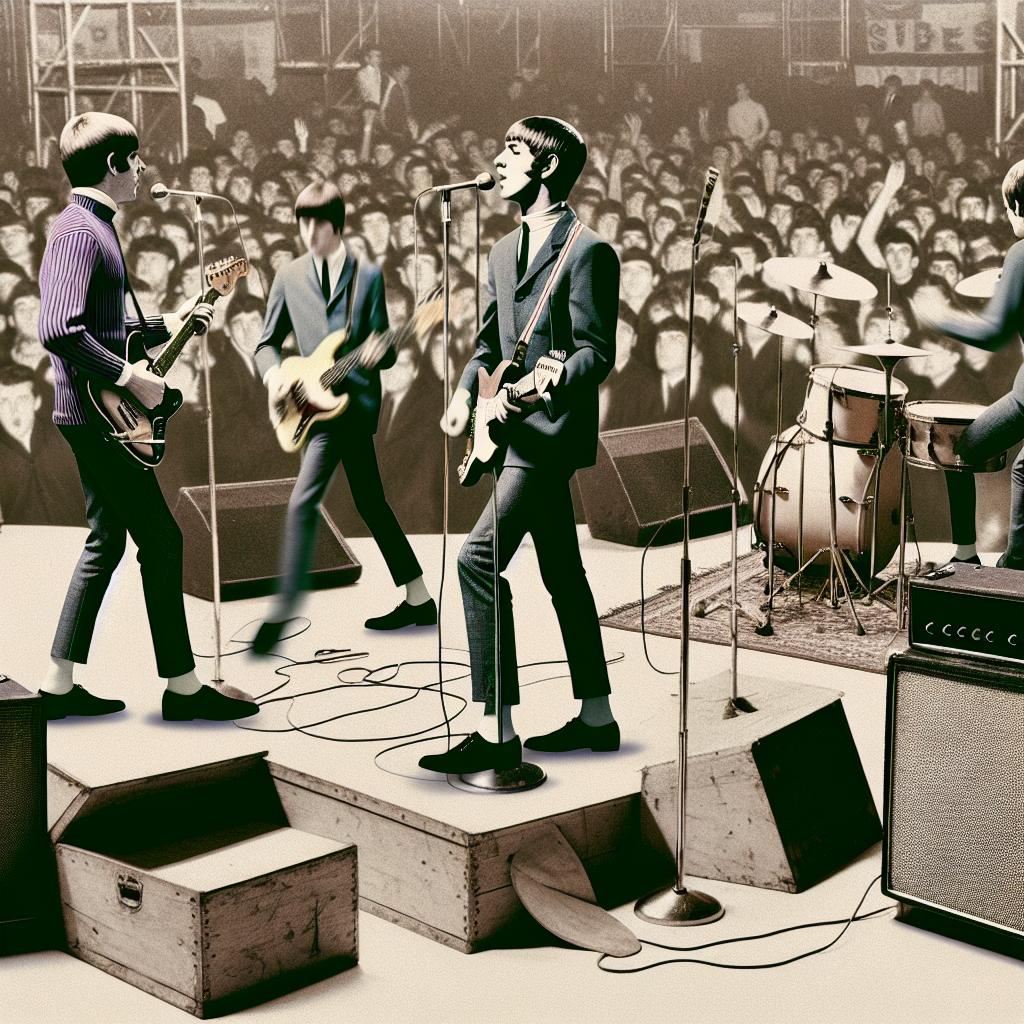The Who’s Role in the British Invasion
The mid-1960s witnessed a significant cultural revolution in the music world, largely fueled by the phenomenon known as the British Invasion. This era was marked by the overwhelming emergence of rock and pop music acts originating from the United Kingdom that broke into and came to dominate the American music scene. Among the pivotal players in this movement was The Who, a band that carved its own niche with a distinctive sound and electrifying performances. Their contribution to this era of music history is particularly noteworthy, as they played a crucial role in directing the course of modern rock music.
Musical Style and Innovation
The Who distinguished themselves by pioneering a unique blend of musical styles that merged different elements such as rock, rhythm and blues (R&B), and pop music. This eclectic mix resulted in a compelling and audacious sound recognized for its powerful vocal deliveries and the innovative use of musical technology. The Who were trailblazers in features like the incorporation of feedback, the use of power chords, and the crafting of intricate dynamic bass lines. These elements set unprecedented standards for live rock performances, pushing the envelope of what was possible on stage. Their innovative engagement with technology—including the pioneering use of synthesizers—and their experimentation with storytelling through music were significant influences on countless bands that came into prominence during and after the British Invasion.
Key Albums and Singles
The embodiment of The Who’s distinctive sound is evident in their acclaimed album My Generation, which was released in 1965. This album features the iconic title track, “My Generation,” which rapidly became a powerful anthem for the youth who felt disconnected and disenchanted during that era. The song not only exemplifies The Who’s rebellious spirit but is frequently regarded as an essential work that encapsulates the essence of the 1960s youth culture. It resonated with young people who were eager to carve their own path and challenge the societal norms of the time.
Stage Presence and Influence
A cornerstone of The Who’s impact on the British Invasion was their dynamic live performances. The band was renowned for its high-energy shows, which set a new template for rock concerts. Central to their influence was the introduction of what would later be termed “rock opera,” with ambitious projects such as Tommy. These works not only showcased The Who’s skills in narrative construction but also their theatrical flair, raising the bar for the performance standards expected from rock bands worldwide.
Destruction as Art
In addition to their music, The Who gained a reputation for their radical onstage antics. Guitarist Pete Townshend, in particular, was notorious for the destruction of musical instruments during performances. This form of rock-and-roll theatricality became synonymous with the band’s image, symbolizing a fierce spirit of rebellion. The dramatic smashing of guitars and the like became a memorable hallmark of their concerts and left an indelible mark on the genre, influencing subsequent rock icons who would adopt similar gestures.
Cultural Impact
In the realm beyond music, The Who wielded significant influence over the cultural currents of the time, notably within the mod subculture of the 1960s. This influence extended to aspects of fashion and lifestyle, and their music came to mirror the mood and sentiments prevalent among the youth confronting rapid social changes. Their involvement wasn’t limited to music alone, as also evidenced by their contributions to film, most notably the release of Quadrophenia in 1979—a project that further solidified their cultural relevance and impact.
Legacy and Ongoing Influence
The legacy of The Who extends far beyond their role in the British Invasion. Their music and style have continued to inspire and resonate with musicians spanning various genres. Many contemporary artists have cited The Who as a vital influence, with their impact noticeable in both musical composition and performance styles. This lasting influence on the music industry is underscored by significant recognitions, including their induction into the Rock and Roll Hall of Fame. The band’s enduring presence in popular culture speaks to the profound and ongoing influence they have had across the generations.
In sum, the story of The Who within the context of the British Invasion is a testament to their innovative spirit and pioneering contributions to the music industry. Through their audacious blend of musical styles, influential live performances, and engagement with the cultural currents of their time, The Who not only played a critical role in shaping the sound and ethos of their era but also laid down a blueprint that continues to influence artists to this day.
